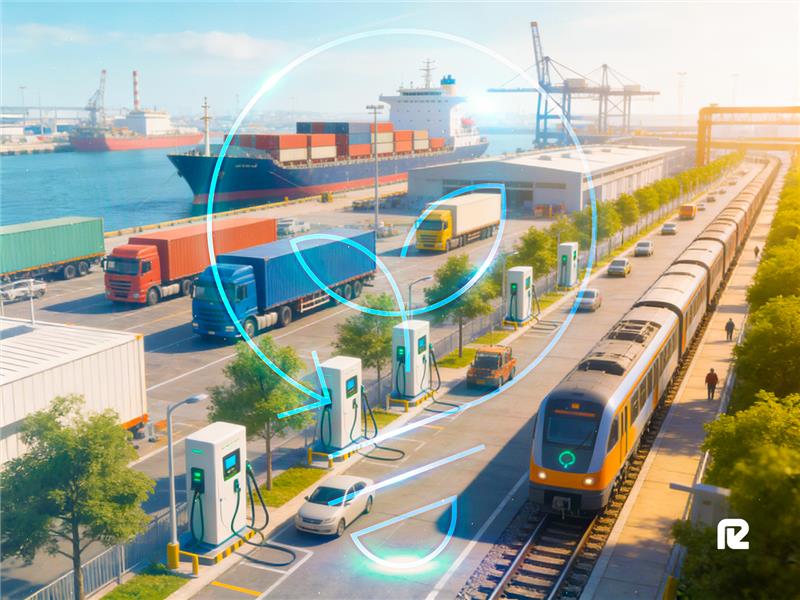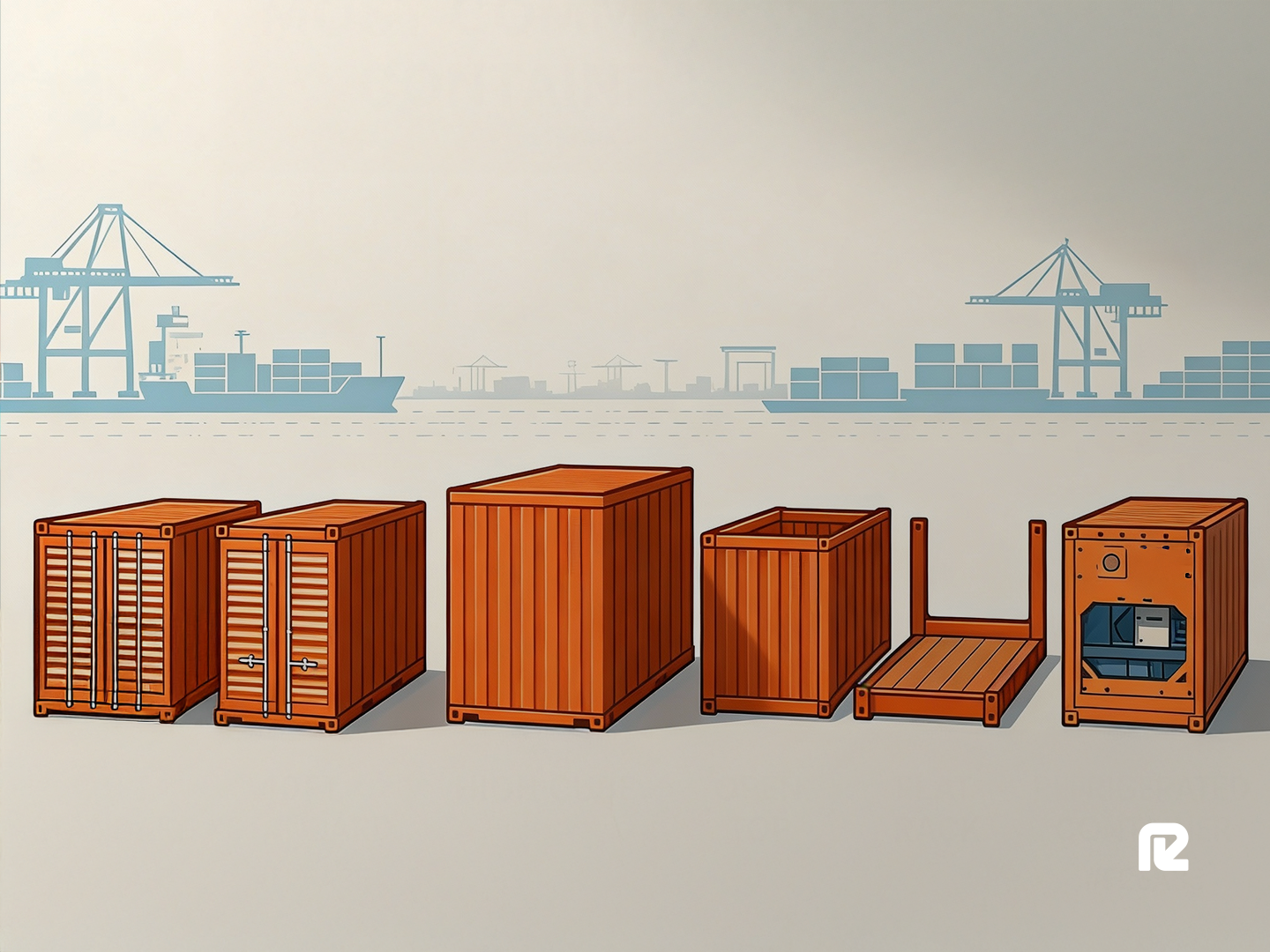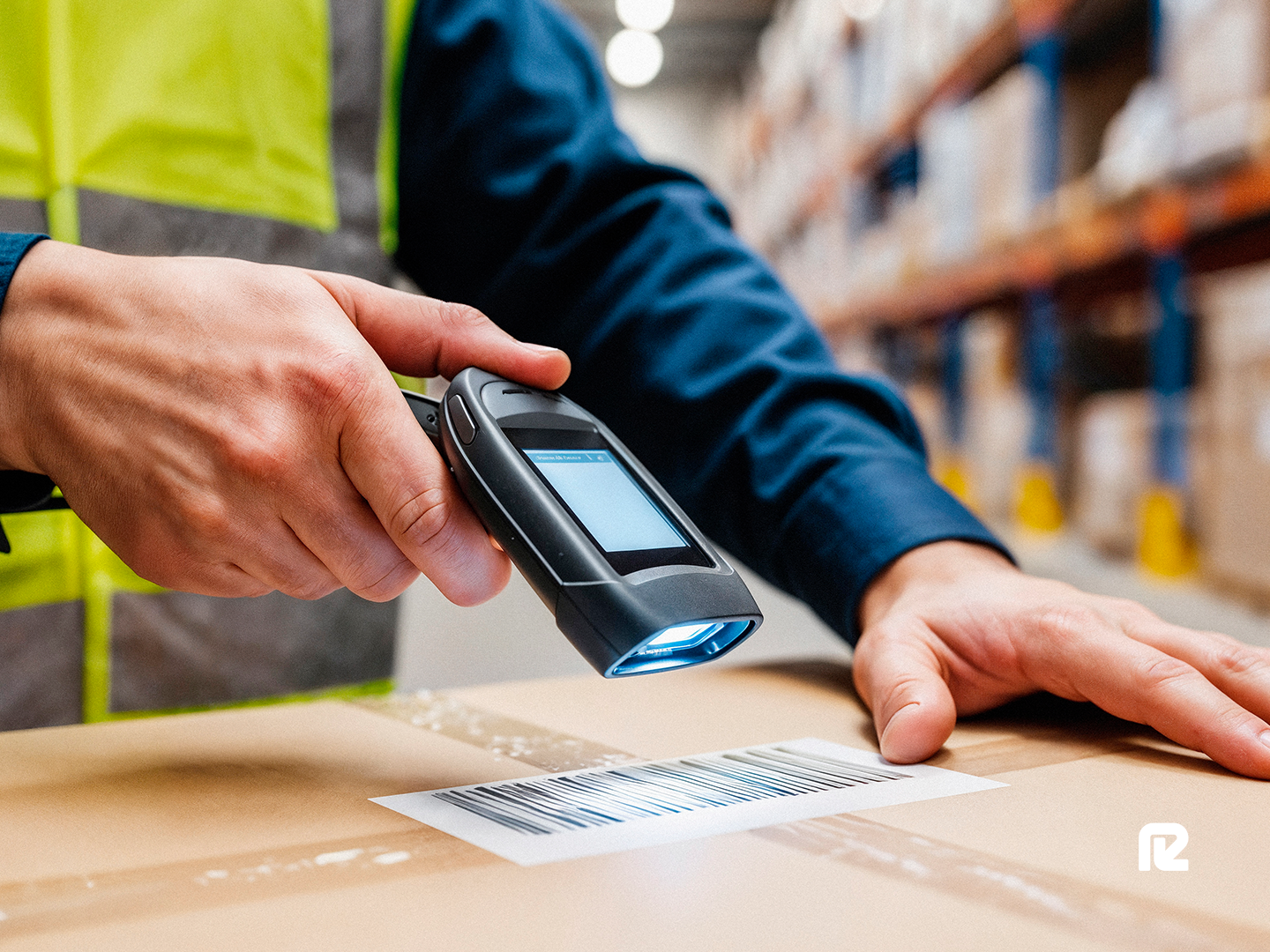What is Ex Works (EXW) in Logistics and Freight Forwarding?
%20in%20Logistics%20%26%20Freight%20Forwarding.png)

Among the 11 Incoterms, one of the most widely used, and most debated, is Ex Works (EXW). It appears simple on paper with responsibilities clearly split between the seller and the buyer, but in practice, its implications can be far-reaching.
So what does Ex Works really mean, why does it matter in international trade, and how should businesses approach it in a way that reduces risk while unlocking opportunity?
What Ex Works (EXW) Really Means
Ex Works is a shipping arrangement in international trade where the seller’s responsibility is minimal compared to the buyer. The seller makes goods available at their premises, usually a factory or warehouse, and from the point those goods leave the premises, the buyer takes on responsibility.
That responsibility includes transport, freight arrangements, customs clearance, insurance, and any duties or penalties that might arise across the journey to the final destination.
EXW is sometimes considered the most ‘buyer-beware’ Intercom as there is a lot more risk involved than other processes. The buyer should be familiar with local export regulations and all of the documentation and legal implications of shipping. However, Ex Works can also be a way to retain control and in many cases, even reduce costs.
Responsibilities Under Ex Works
Here’s how the obligations break down:
Seller Responsibilities
• Prepare the goods for pickup, which must be properly packaged and labeled.
• Provide a commercial invoice and all basic shipping documents.
• Facilitate access for pickup at the agreed location. There may also be an agreement to load the cargo, but this is not always the case.
Buyer Responsibilities
• Organize inland transport from the seller’s premises.
• Load goods onto the collection vehicle if agreed.
• Handle export clearance and documentation in the seller’s country.
• Arrange and pay for the main carriage (sea, air, or multimodal).
• Organize cargo insurance from the pickup point onward.
• Manage import customs clearance, duties, and compliance.
Why Ex Works Still Matters in International Trade
Despite those challenges, Ex Works remains one of the most frequently used intercoms globally. There are a few reasons for this; one is that the process is so simple for sellers, and for experienced and sophisticated buyers, it offers a lot of control, especially in industries like mining, energy, and manufacturing. Having this control means buyers can choose the most efficient transport routes and negotiate their own rates. For those working with freight forwarders, this control can translate into significant cost savings.
How Ex Works Functions
The process of Ex Works begins with preparing and collecting the goods and extends all the way to the final delivery. Below are the typical steps of Ex Works in the real world:
1. Pre-collection: The seller prepares the goods for collection. At this stage, the buyer may arrange for the seller to load the goods to avoid unnecessary delays or damage.
2. Collection and loading: The buyer (or their forwarder) arranges the truck and manages loading.
3. Export formalities: The buyer files or arranges export declarations and secures any required licenses or permits.
4. Origin transport: Goods are moved to the port or hub and prepared for export.
5. Carrier booking: The buyer secures space with carriers (sea, air, or multimodal transport) and makes sure this aligns with vessel cut-offs or flight schedules.
6. Insurance coverage: The buyer carries risk from the point of pickup, so insurance needs to be arranged for the entire journey.
7. Import customs clearance: The buyer handles import declarations, duties, and taxes.
8. Final delivery: The buyer arranges last-mile delivery to the warehouse, facility, or end customer.
As the buyer is responsible for the majority when using Ex Work, it’s typical that they will work with a freight forwarder to carry out these steps on their behalf. Reliable freight forwarders will have strong connections with carriers as well as an in-depth understanding of the regional regulations for shipping compliance.
How is Ex Works calculated?
When a supplier quotes an Ex Works price, it will only include the cost of goods, not transport, export, or insurance fees. This makes EXW appear cheaper on paper compared to CIF (Cost, Insurance, and Freight) or DDP (Delivered Duty Paid) where it's typical that more services are included in the quote.
If the buyer is inexperienced or not using an established freight forwarder, the final cost to deliver can quickly outweigh the price they may have paid under an alternative incoterm.
Ex Works vs Other Incoterms
To understand the nuances of EXW, it’s helpful to compare it with a few other Incoterms commonly used in global trade.
• Free Carrier (FCA): With FCA, the seller delivers the goods to a carrier decided by the buyer and usually also handles export clearances. This can make more sense than Ex Works in regions where buyers lack the local expertise in export regulations.
• Free on Board (FOB): Under FOB, the seller delivers goods to a port and ensures they are loaded onto the vessel. Risk then transfers to the buyer once goods are on board. This offers buyers less control than Ex Works but reduces the complexity of managing inland logistics in the seller’s country.
Both FCA and FOB offer a more balanced division of responsibility, whereas EXW offers maximum buyer control.
The Pros and Cons of Using Ex Works
If there is so much responsibility on the buyer's shoulders when choosing Ex Works, then why do so many decide to go down this route? There are some clear advantages as well as risks.
The Rewards
• Cost Savings: Buyers can usually negotiate better shipping rates through their own forwarders.
• Flexibility: With full control over the entire logistics supply chain, buyers can align transport with their own priorities.
• Confidentiality: Buyers keep control of their logistics partners and can safeguard the identity of end customers.
The Risks
• All Burdens on the Buyer: From insurance to customs, the buyer carries every responsibility.
• High Complexity: Without deep logistics expertise or a strong freight forwarder, buyers may face delays or penalties.
• Need for Reliable Representatives: Buyers must have trusted freight forwarders and local representatives in place to manage pickups, documentation, and compliance. Without this, EXW becomes extremely difficult to execute smoothly.
For businesses in Sub-Saharan Africa, these risks can be magnified. Infrastructure bottlenecks, varying customs regimes, and regulatory hurdles mean that EXW requires both knowledge and reliable partnerships to execute successfully.
Should You Choose Ex Works?
Ex Works is one of the simplest Incoterms to understand, but also one of the most demanding. It offers buyers control and cost savings, but only if they have the expertise or logistics partners to manage the responsibilities it brings.
Reload Logistics helps businesses evaluate not just EXW but the full range of Incoterms, tailoring solutions that match each client’s needs. That means:
• Providing end-to-end freight forwarding services to ensure goods move efficiently from origin to final delivery.
• Offering risk management and insurance support, so buyers are not exposed to unexpected losses.
• Leveraging our regional expertise to navigate Africa’s complex trade environment with confidence.
Looking to understand whether Ex Works is the right choice for your next shipment? Speak to Reload Logistics to discover how we can simplify trade, manage risks, and unlock opportunities across Southern Africa’s logistics landscape.
FAQs
What is EX Works in logistics?
Ex Works (EXW) is one of the Incoterms and means the seller makes the goods available, and the buyer is responsible for transport, export clearance, import customs, and delivery.
Does Ex Works include VAT?
No, EXW pricing does not include VAT. The buyer is responsible for handling any applicable taxes, both in the country of export and in the destination country.
Does Ex Works include GST?
No, Goods and Services Tax (GST) is not included in EXW pricing. Like VAT, GST must be handled by the buyer during customs clearance or importation, depending on the jurisdiction.
What documents are required for Ex Works?
The seller provides a commercial invoice and a packing list. All other documents must be arranged by the buyer or their freight forwarder.
What is the difference between Ex Works and FOB?
Under Ex Works (EXW), the buyer takes responsibility from the seller’s premises. Under Free on Board (FOB), the seller delivers goods to the port of shipment, clears them for export, and loads them onto the vessel. Risk transfers to the buyer only once the goods are on board.
Does Ex Works include packaging?
Yes, but only basic export-ready packaging. The seller must prepare goods for collection, but any special handling, labeling, or protective measures beyond standard packaging may need to be agreed separately.
Who is responsible for loading in Ex Works?
Strictly speaking, the buyer is responsible for loading. However, in practice, many sellers assist with loading to avoid delays or disputes. Buyers should clarify this in the sales agreement.
What are the risks of EXW?
The main risks include complexity in export procedures, high buyer responsibility, and financial exposure if goods are damaged or delayed.
Categories






